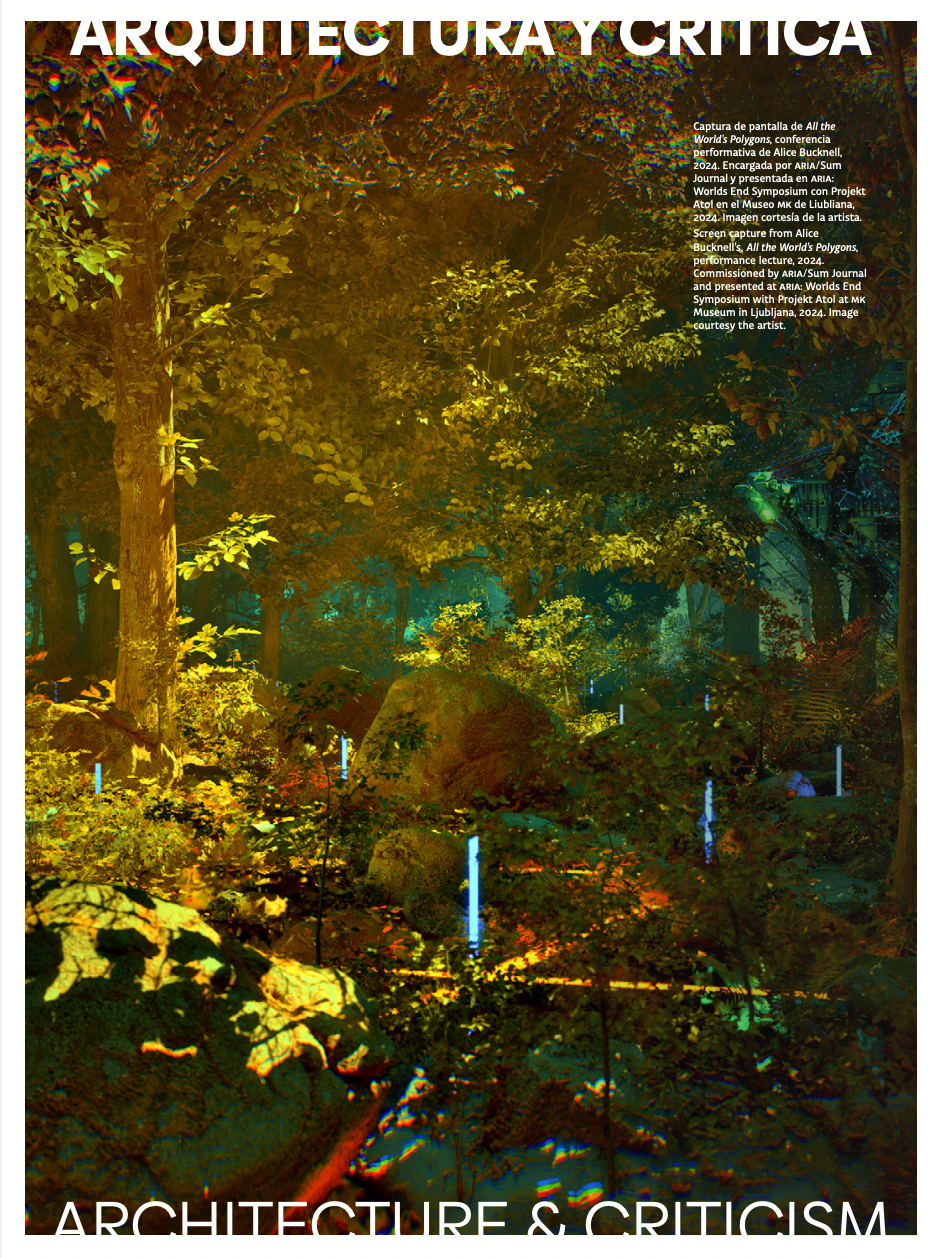Simulating the in-common
Article Sidebar

Keywords:
Main Article Content
Abstract
The ‘in-common’ is the term used by philosopher Achille Mbembe to describe a post- Anthropocenic notion of a planetary collective consciousness. This article considers aspects inherent to the medium of simulation that may approximate an instantiation of the in-common. Facets of Studio Lifeforms’ project Planet Garden: Earth After Singularity and Alice Bucknell’s performance All the World’s Polygons, are discussed to situate the potentials of simulation for rendering visible, archiving, historicizing, and pedagogical engagement. Bruno Latour’s distinction between the world we ‘live in’ and the world we ‘live from’ is posited as a parallel to the discrepant spaces of the game world and the physical environment. The article contends that simulation is a highly effective practice for knowledge production regarding our environmental futures.
Article Details

This work is licensed under a Creative Commons Attribution-NonCommercial 4.0 International License.
Materia Arquitectura provides immediate and free access to all the content of this online edition, published simultaneously with the print edition.
Materia Arquitectura does not charge authors for any concept.
All contents of this electronic edition are distributed under the Creative Commons license of "Attribución-shareAlike 4.0 Internacional" (CC-BY-SA).
The rights of the published texts and images belong to their authors, who grant Materia Arquitectura the license for their use. The management of the permits and the authorization of the publication of the images (or of any material) that contains copyright and its consequent rights of reproduction in this publication is the sole responsibility of the authors of the articles.
As long as they mention their origin, the authors are free to distribute their articles by other means. Any total or partial reproduction of the material must mention its origin.
Downloads
References
Latour, B. (2020). Seven Objections Against Landing on Earth. In B. Latour & P. Weibel (Eds.), Critical Zones: The Science and Politics of Landing on Earth (pp. 15–19). MIT Press.
Mbembe, A. (2021). The Earthly Community (S. Corcoran, Trans.). V2_Publishing.
Penvose, J. (2024). Gaia: Large World Model. In D. Jovanovic, L. Kljakovic, E. Besmerti, J. Penvose, & B. Elmer (Eds.), Planet Garden: Earth After Singularity Video Game Companion (pp. 43–52). Getty PST; SCI-Arc.